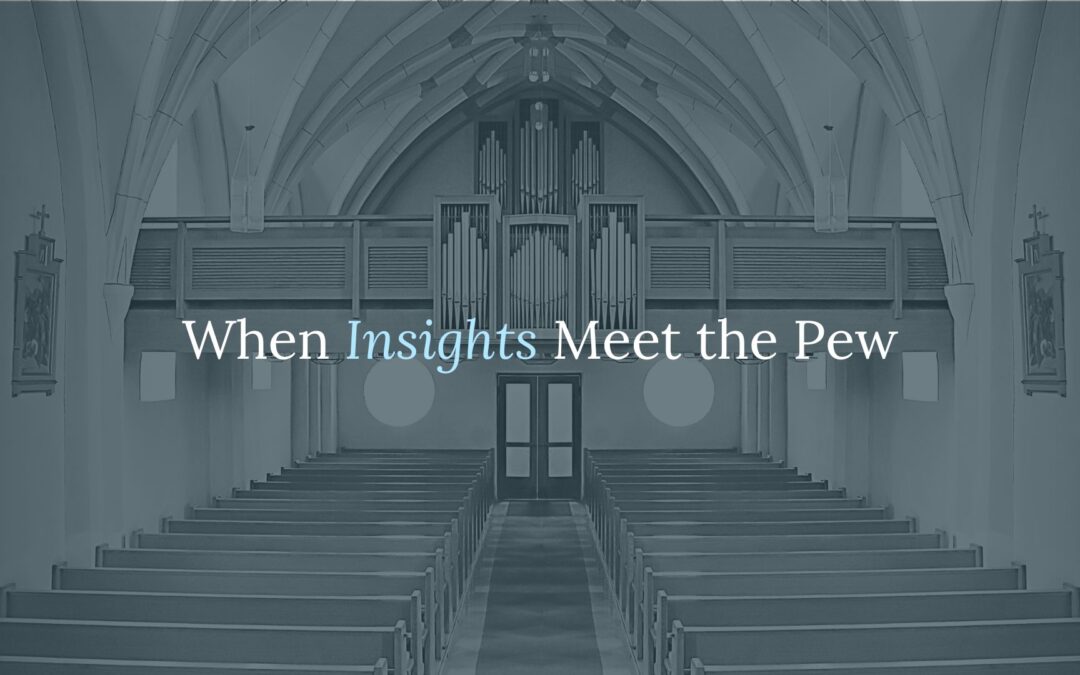Leading in a Time of Change
As a pastor, I often find myself reflecting on how to better connect with and guide my congregation. The cultural tides are shifting rapidly, and as leaders of faith communities, we must stay attuned to these changes if we hope to shepherd well into the future.
This past week, I spent time engaging with two significant research efforts from the Barna Group: their State of the Church 2025 initiative and the newly released Gen Z Volume 3. What I discovered was both enlightening and challenging—offering timely insights into the evolving landscape of church life and the spiritual hunger of the next generation.
A Glimpse into the Future Church
Barna’s State of the Church 2025 offers a compelling forecast of where the church is headed. At first, I met the data with some skepticism—wondering how charts, graphs, and statistics could fully capture the spiritual heartbeat of a congregation.
Yet as I read deeper, I was surprised by how closely the report echoed what I’ve observed in my own ministry. It spoke of:
- A continued shift toward digital engagement
- A growing hunger for authentic community
- An urgent need for spiritual transparency and depth
These aren’t just distant trends—they’re realities we are already experiencing. The data validated the undercurrents I’ve sensed among those in the pews.
The Call for Spiritual Authenticity
What struck me most was the emphasis on spiritual authenticity. Time and again, I see people—young and old alike—longing for a faith that’s real, raw, and deeply personal. Barna’s research confirmed that this desire is not isolated; it’s widespread.
This insight challenged me to ask: How are we creating spaces for authenticity in our churches? Are we giving people permission to wrestle, ask questions, express criticisms and doubt without fear?
For our ministry, this means moving beyond surface-level engagement and building a culture that nurtures honest faith journeys.
Understanding Gen Z: A Generation of Opportunity
Next, I turned to Gen Z Volume 3. My initial feeling was a mix of curiosity and caution. Gen Z is often described as complex, digital-first, and emotionally attuned. Could we really meet them where they are?
Barna’s report made it clear: this generation is seeking emotional health, meaningful connection, and spiritual authenticity. They are not disengaged—they’re searching. But they want to engage on relational, truthful terms through formats that reflect their world.
Rethinking Ministry for a New Generation
This realization led to some practical thoughts. What if we started piloting scripture-saturated small group sessions focused on storytelling, vulnerability, and the real-life application of faith. These aren’t programs designed to entertain; they’re meant to build trust and make space for real conversations.
Young people want to talk—they just need to know we’re listening.
Insights as Tools, Not Templates
Both Barna reports offered more than statistics—they offered a roadmap for ministry. They reminded me that effective leadership today requires more than tradition; it requires curiosity, adaptability, and a willingness to learn.
As pastors and ministry leaders, we must approach cultural shifts not as threats but as Good News opportunities. Invitations to rethink, relearn, and reimagine how we disciple others in a rapidly evolving world.
Moving Forward with Courage and Grace
In the busyness of weekly sermons and pastoral responsibilities, it’s easy to overlook broader trends. But if we hope to shape churches that endure and flourish, we must take time to reflect, learn, and adapt.
So, what’s the takeaway?
Let’s not fear change—let’s engage with it. Let’s use insights like those from the Barna Group as tools to better understand the people we serve. And above all, let’s lead with love.
In writing this, I’ve found renewed inspiration. I’m reminded that we are not just caretakers of tradition—we are co-creators of the church’s future. May we step into that calling with open hands, willing hearts, and the courage to lead well.

